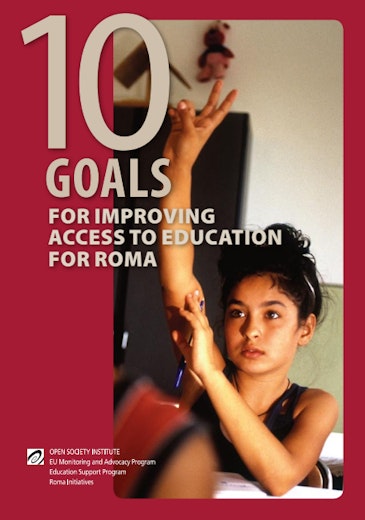The Open Society Institute, Allianz Kulturstiftung, and the European Cultural Foundation presented the First Roma Pavilion at the 52nd Venice Biennale, featuring a selection of contemporary Roma artists from eight European countries.
A Roma Pavilion alongside the Biennale's national pavilions was a significant step toward giving contemporary Roma culture the audience it deserves. The pavilion marked the arrival of contemporary Roma culture on the international stage and sends an important message of inclusion: the Roma have a vital role to play in the cultural and political landscape of Europe.
Contents
- Foreword
- Paradise Lost: The First Roma Pavilion by Tímea Junghaus
- Statements
- Second Site by Thomas Acton
- Towards Europe's First Nation by Michael M. Thoss
- The Roma Pavilion in Venice: A Bold Beginning by Gottfried Wagner
- Artists, Statements, Works
- Daniel Baker
- Tibor Balogh
- Mihaela Cimpeanu
- Gabi Jiménez
- András Kállai
- Damian Le Bas
- Delaine Le Bas
- Kiba Lumberg
- Omara
- Marian Petre
- Nihad Nino Pušija
- Jenô André Raatzsch
- Dusan Ristic
- István Szentandrássy
- Norbert Szirmai - János Révész
- Bibliography
Download
-
Paradise Lost (4.65 Mb pdf file)
Download the 85-page document.
Read more
publication
10 Goals for Improving Access to Education for Roma

This Open Society Foundations brochure pinpoints 10 fundamental goals in education that can help secure a bright future for all children in Europe.
Voices In Depth
Inside the Archives: George Soros and the Fight for Roma Dignity

For over 40 years, George Soros has been the leading private supporter of Europe’s Roma—the continent’s largest and most excluded ethnic minority—championing Roma leaders in their fight for equality and against deep-rooted discrimination.
Roma Rights
A New Roma-led Vision of Power

The new, independent, Roma Foundation for Europe is backed by a €100 million pledge that builds on Open Society’s over 30 years of support for Roma causes.
